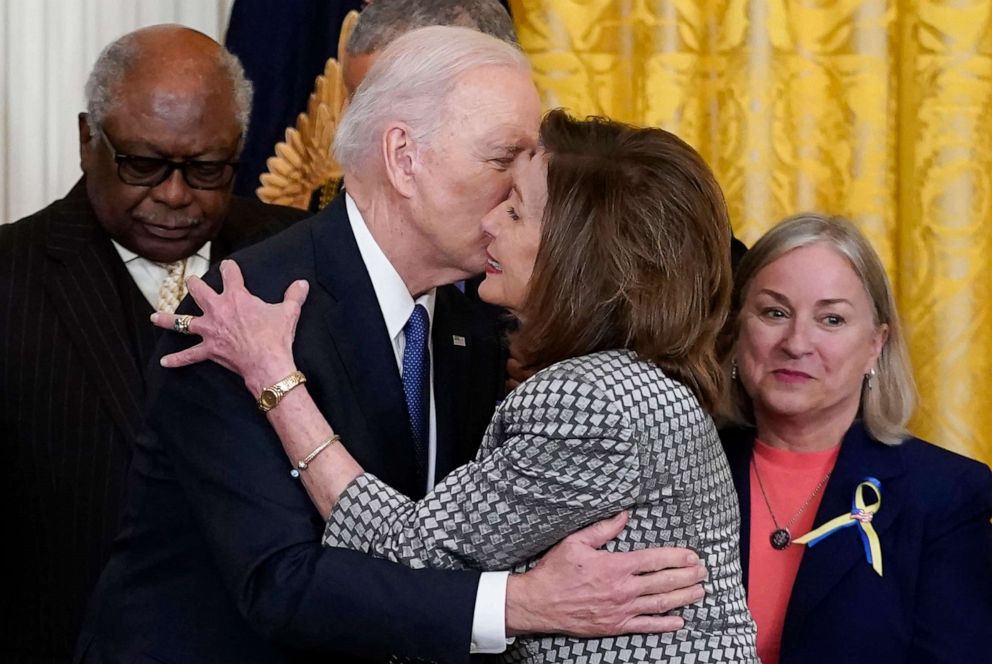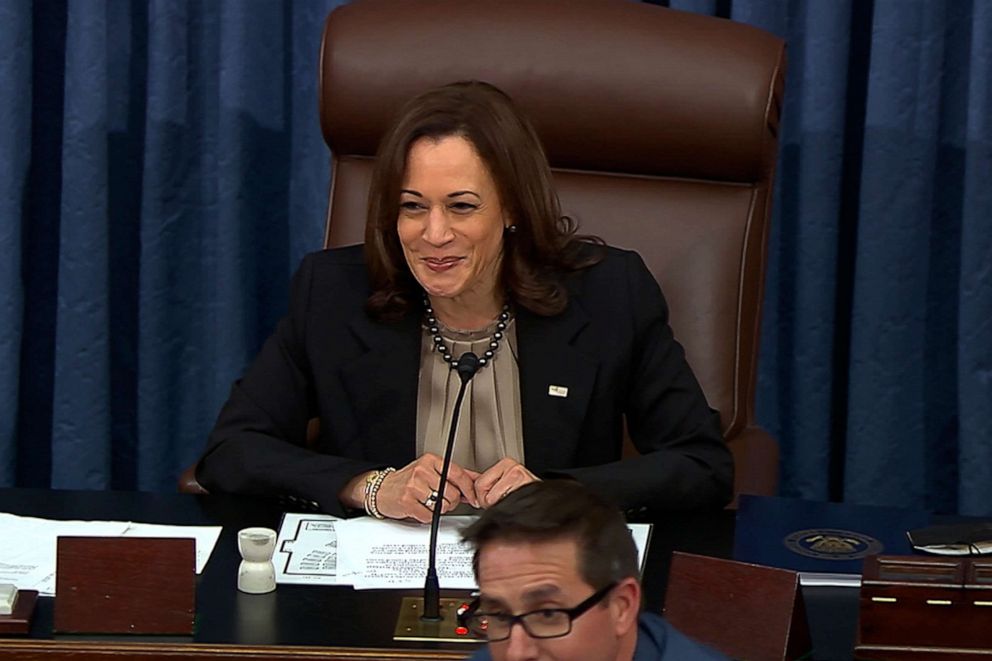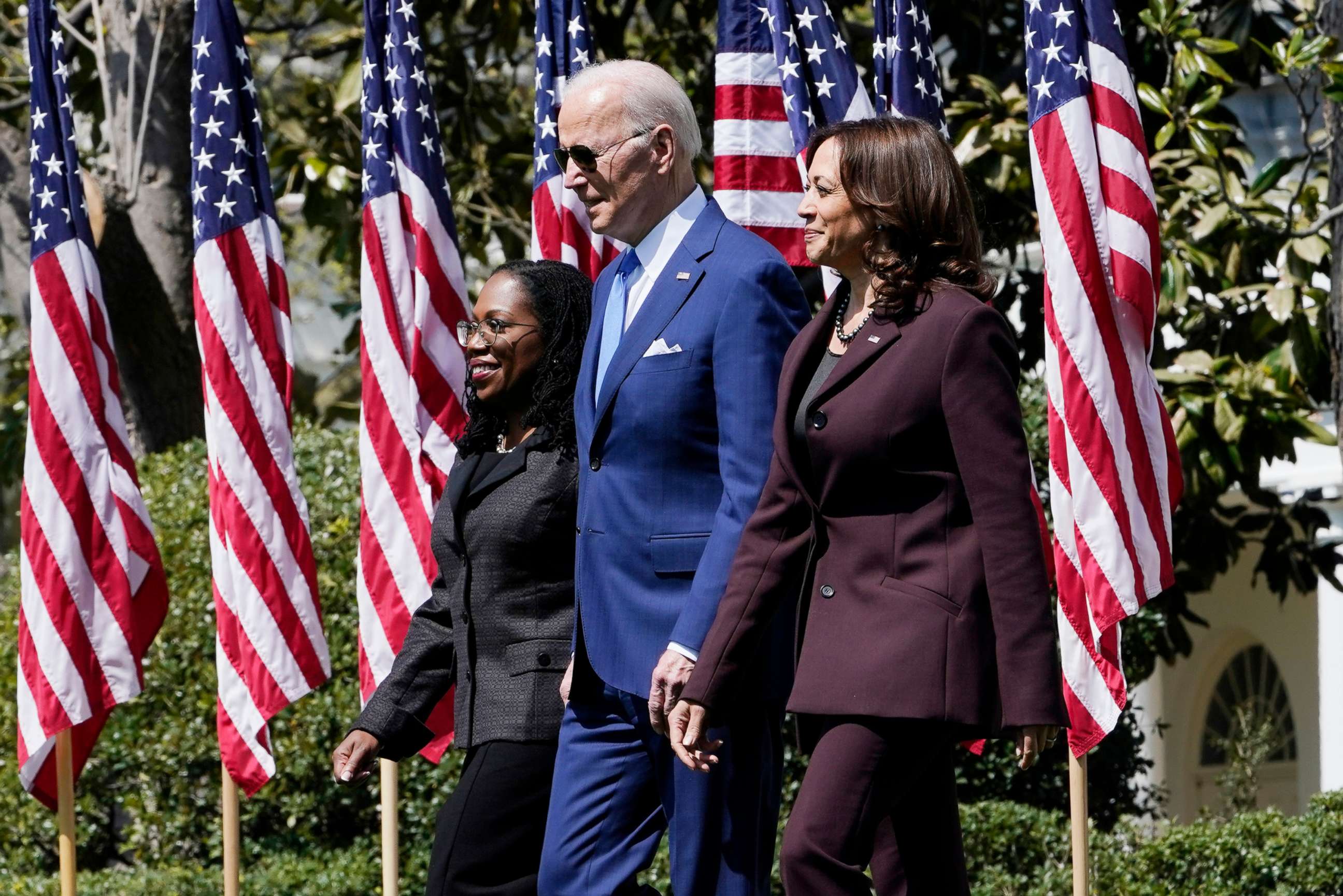Questions over White House COVID protocols amid uptick in cases
Officials say President Biden is following CDC guidance and his doctor's advice.
The White House is charging ahead with President Joe Biden's schedule despite an uptick of COVID-19 cases among Washington politicians and staff members, including some in the president's inner circle and others who have come near him at White House events.
White House officials have repeatedly said they follow advice from the president's doctor, adhere to Centers for Disease Control and Prevention guidance and, in some cases, "go beyond it" to protect the president.
But recent close calls are putting a spotlight on how those prevention practices are being applied and where questionable exceptions are being made.
Even as administration officials say they'll continue to adhere to strict protocols, the White House changed its tone Friday about the risk of Biden catching COVID.
In a shift in tone, White House communications director Kate Bedingfield told CNN Friday morning it's now "certainly possible" the president could still test positive for COVID at some point.
Noting that the president is vaccinated and double-boosted, press secretary Jen Psaki tried to clarify those comments during Friday's White House press briefing.
"[I]t is also the case that despite all of the precautions we take and even with the president being double-boosted, he could still test positive for COVID," she said, "just as people -- many people in the White House have -- many people in the press corps have. That is a possibility and we want to be transparent with the American public about that."
In recent days, two White House staffers and at least 19 members of Congress have tested positive for COVID-19. On Thursday, House Speaker Nancy Pelosi tested positive after being near the president on two different occasions earlier in the week -- at one point they shared a kiss on the cheek.

On Thursday, White House press secretary Jen Psaki told reporters the president was not considered a "close contact" of Pelosi, as defined by Center for Disease Control and Prevention guidelines because they had not been within six feet of each other for 15 minutes.
The president tested negative for COVID-19 on Friday morning, according to a White House official.
This week, when Vice President Kamala Harris presided over the Senate confirmation of Judge Ketanji Brown Jackson to the Supreme Court, she was not wearing a mask much of the time despite being deemed a close contact of her communications director, who tested positive two days before the vote.

According to CDC guidance, someone who is deemed a close contact should wear a "well-fitting mask for 10 full days" when around other people at home or in public.
A White House official later told ABC News Harris had gotten a doctor's okay before going maskless while sitting on the dais during the Senate vote.
"After consulting with a White House physician and reviewing CDC guidance, which we do for all engagements, the vice president presided over the Senate while practicing social distancing -- with limited and brief interactions from her chair. In addition, the vice president tested negative today, and will continue to maintain strong protocols and follow the CDC's guidance," the official said.

Despite the increasing number of new cases in people coming close to Biden, the White House said it does not plan to step up testing for Biden or enforce a stricter mask mandate around the president.
"That would be a decision made by his doctor. But that is not deemed to be necessary at this point," Psaki told ABC Senior White House Correspondent Mary Bruce.
While masks are now optional at the White House campus, meetings with the president are often socially-distanced, officials said.
The White House says it has a strict testing protocol for any staffer or administration official who comes near the president as well as for Biden himself. When pressed on whether those same requirements apply to others who meet with the president, such as guests, Psaki said the White House would assess each situation on a "case-by-case" basis.
ABC News' Mariam Khan contributed to this report.




